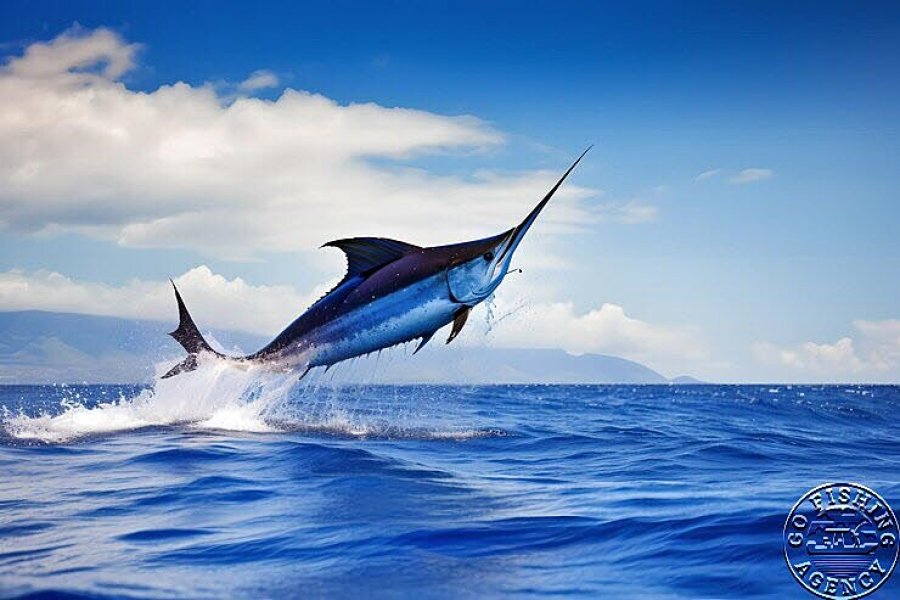
- Inshore or Offshore: Predominantly Offshore, found in deep bluewater, offshore structures, and oceanic currents.
- Fish Legal Size Limits: Highly regulated due to conservation concerns; specific size limits and quotas are strictly enforced.
- Amount of Fish per Person and Vessel: Usually not targeted for consumption; catch-and-release is common for conservation.
- Time of Day You Can Catch Them: Blue Marlin are often caught during daylight hours, with trolling and bait-and-switch techniques.
- Bait: Effective baits include artificial lures, rigged baitfish, and teasers, with trolling being a common technique.
- Taste: Blue Marlin is primarily a game fish, and catch-and-release practices are standard. It is not typically targeted for its meat, as conservation efforts are prioritized.
The Blue Marlin, scientifically known as Makaira nigricans, is a majestic and powerful fish renowned for its distinctive blue coloration and long, sword-like bill. As one of the largest and fastest fish in the ocean, the Blue Marlin is a highly sought-after species for sport fishing.
Encounter the Blue Marlin, or as scientifically identified, Makaira nigricans – an iconic predator inhabiting both tropical and temperate waters, displaying its vibrant blue hues and impressive bill. This species is often associated with offshore environments, where it pursues schools of smaller fish.
Anglers pursue the challenge of catching Blue Marlin, prized for their size, strength, and acrobatic displays during the fight. Responsible fishing practices, including catch-and-release efforts, are crucial for the conservation of Blue Marlin populations and the overall health of marine ecosystems.
https://myfwc.com/fishing/saltwater/recreational/billfish-tuna/